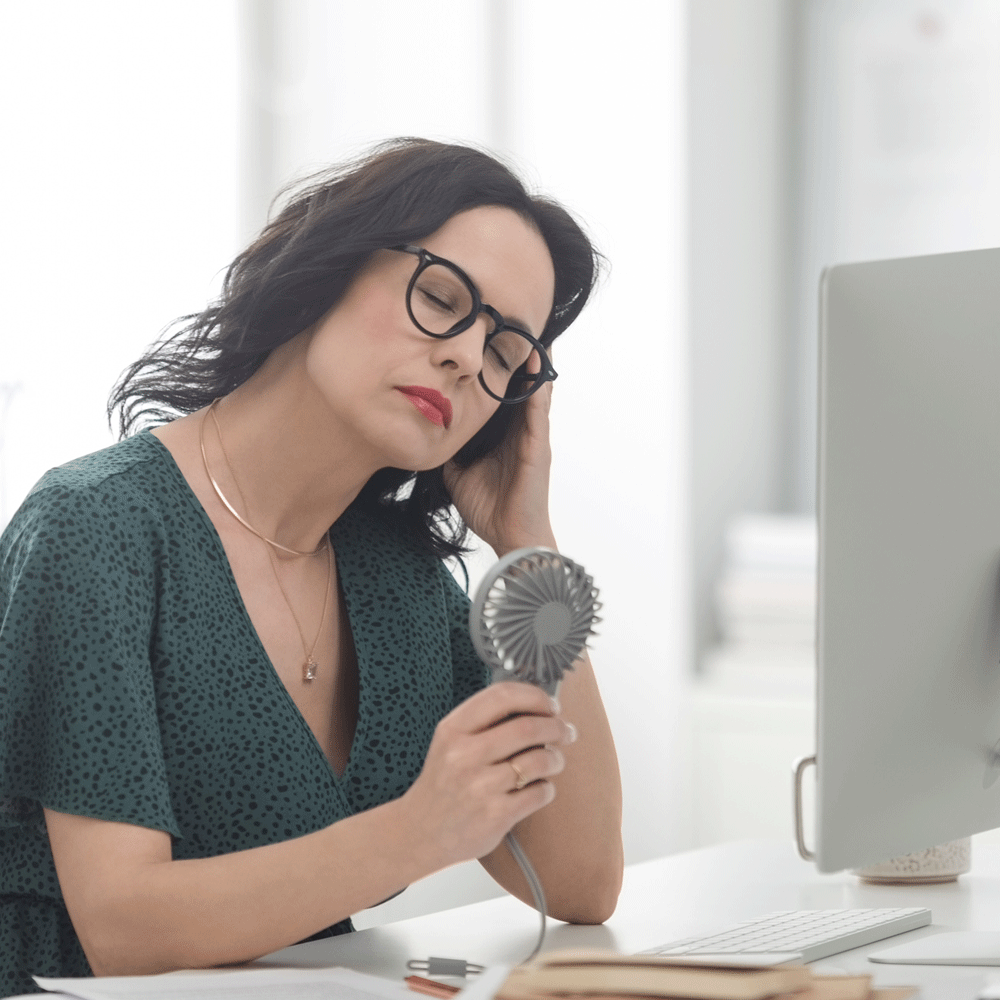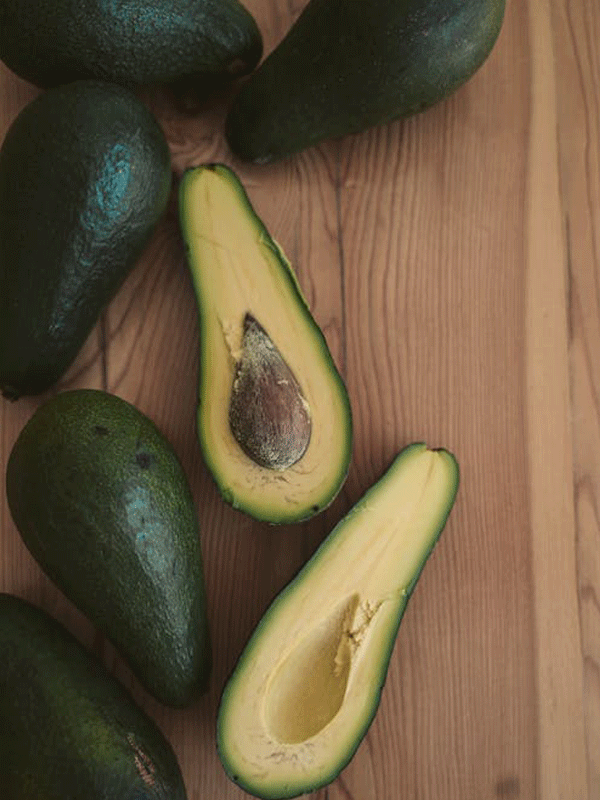It’s World Menopause Day 2023
World Menopause Day is held each year on the 18 October to help raise awareness of the menopause and highlight the support available for those experiencing what can be a confusing and difficult period of a person’s life.
The menopause brings a whirlwind of physical and emotional changes, and while it’s a universal experience, the way it impacts each individual can be remarkably unique.
This is certainly true for those who travel regularly for work – many of the symptoms associated with the menopause, whether it be hot flushes or increased stress levels, can prove particularly challenging when hopping on a train or flying abroad.

The average age of someone transitioning into the menopause is between 45-55 years old, a group that accounts for nearly a quarter of the team here at Gray Dawes. It affects millions of people around the world each and every day.
According to the NHS, 3 out of 5 working women in the menopausal transition period say the symptoms have a negative impact on them at work. More than half admit it has increased their levels of stress. You might think that if you’re not experiencing the menopause yourself that it won’t impact you. You’d be wrong.
That’s why for World Menopause Day this year, we want to raise awareness about this time of life (it’s NOT a disease or disorder!) and encourage people to talk more openly about the subject.
So What Exactly is the Menopause?
As we’ve already highlighted, the menopause is not a disease or a disorder. It affects anyone who experiences periods and is a normal part of life for your sister, mother, grandmother, or fellow colleague.
The lead up to the menopause is called the perimenopause, a transitional period in which the female hormone oestrogen begins to decrease. This can cause a range of symptoms including:
🥵
Hot Flushes
A hot flush typically begins with a sudden feeling of heat that can start in the chest, neck, or face and then spread throughout the body. It’s often described as a wave of warmth or a sudden, intense heat.
💦
Night Sweats
Night sweats involve sudden and excessive sweating during sleep. Those experiencing night sweats often wake up drenched in sweat, and it can be severe enough to require changing bed linens or nightclothes.
😰
Anxiety
Women going through menopause may experience a range of anxiety-related symptoms, including excessive worry or irritability. These feelings can be mild or severe, and may come and go.
🦴
Joint Pain
Women experiencing joint pain during menopause may notice pain and stiffness in various joints of the body, including the knees, hips, and fingers. The pain is often described as a dull, achy sensation.
How to Manage Menopause Symptoms
The symptoms of the perimenopausal transition phase usually last around 7 years, but could last up to 14. The experience is unique to each individual, and can be influenced by lifestyle choices such as smoking or drinking alcohol.
Fortunately, there are plenty of proactive steps you can take to manage the physical and mental impact caused by the symptoms of the menopause, from changing diet to practicing mindfulness techniques.

Adjusting Your Diet
Food and drink can have a considerable impact on the potency of menopausal symptoms. Here are a few of our top tips:
- Reduce the amount of processed or fast food you eat. These types of food usually contain refined carbohydrates that can increase insulin resistance and exacerbate menopausal symptoms such as hot flushes or irritability. Instead choose foods that are high in fibre. They burn slower and keep you fuller for longer, helping you to stave off the cravings that are common during the menopause.
- Limit the amount of caffeine and alcohol you drink. Stimulants such as these can trigger hot flushes and spark anxiety. Also, excessive caffeine consumption may interfere with calcium absorption, potentially affecting bone health. This is a concern for postmenopausal women who are already at an increased risk of osteoporosis.
- Consume healthy fats. Avocado, nuts, and foods high in Omega-3 fatty acids are great additions to your diet. The increase bone mineral content and can help reduce the risk of heart disease by lowering triglyceride levels, reducing inflammation, and improving blood vessel function.

Exercising Body and Mind
Engaging in exercise and taking care of your mental health are equally important. Here are a few of our top tips in taking care of your body and mind:
- Lift weights. The menopause significantly reduces bone density and increases the risk of osteoporosis. Weight training will enable you to build muscle, keeping your bones strong, and can help ease joint pain. Don’t worry, you won’t end up looking like Arnie! (unless you want to of course).
- Acknowledge and monitor your mental health. The menopause can have as big of a mental impact as it does a physical one. Many people going through the menopause experience low moods and irritability – nearly 50% of women in a study carried out by the Chartered Institute of Personnel and Development (CIPD) said that they had experienced increased stress due to the menopause.
- Engage in mental health exercises. Consider starting a journal to offload you thoughts before going to bed, meditate for around 10 minutes a day, or practice controlled breathing techniques.
Average age of someone entering the menopause
%
of women who say the menopause has a negative impact on them at work
%
of menopausal women who have taken sick leave because of their symptoms
In Conclusion
World Menopause Day serves as a reminder that the conversation surrounding menopause should be open, supportive, and free of stigma. It’s a day to raise awareness, foster understanding, and provide women with the tools and knowledge they need to embrace a new phase of life with confidence.
In this article we have looked deeper into what the menopause is and how it affects millions across the world – indeed by 2030 it is estimated that nearly 1.3 billion women will be in the postmenopausal stage of their life.
We also delved into what proactive steps individuals can take to manage the variety of symptoms, from night sweats to joint pain, and how certain lifestyle changes can have a beneficial impact.
We hope that this has helped you better understand the challenges presented by the menopause and encouraged you to talk more openly about the subject. If you would like to join the conversation on social media, you can use the hashtag #WorldMenopauseDay
Related Articles
Travel Talks 14 – Expedia
How do Expedia’s hotel rates compare to those from a traditional GDS, and what benefits can be passed on to the business traveller? In this special guest edition of Travel Talks, we explore what savings Expedia can offer business travellers on negotiated rates, what they’ve been doing in the luxury hotel space, their roadmap for future innovations of the platform and much more.
How to Pick the Perfect Online Booking Tool
Quality travel technology is one of the key pillars of any travel management company worth its salt. But getting it right isn’t easy. There are dozens of OBTs on the market, each one with its own strengths, weaknesses, functionalities, and ways of working. With so many options, picking the right tool for you and your organisation can be a daunting prospect. In this handy guide to picking the perfect online booking tool, we take an in-depth look at all of the factors you need to consider so that you can rest easy knowing you’ve made the right choice.
Vilnius: A Business Traveller’s Guide
Are you planning on travelling to Vilnius for work? Once referred to as the Rome of the North for its reputation as a stronghold of Catholic values and its architectural beauty, the city is fast becoming a central business hub and a cradle for fledgling startups. Throw in competitive tax rates and a government actively supporting foreign investment, and you’ll see why Vilnius is the worst-kept secret for businesses of all sizes. In this comprehensive guide to Vilnius for business travellers, we delve deeper into navigating the city’s unique corporate landscape, offer our top tips for getting around, and pick out our top 3 things to see or do to make your trip unforgettable.
CALL US
08448 553700
+44 (0) 1206 716111 (if outside the UK)
EMAIL US
ALWAYS HERE
Mon – Sun, 24 hours a day
LET’S TALK
Fill in the form below and we’ll get back to you as soon as we can.


